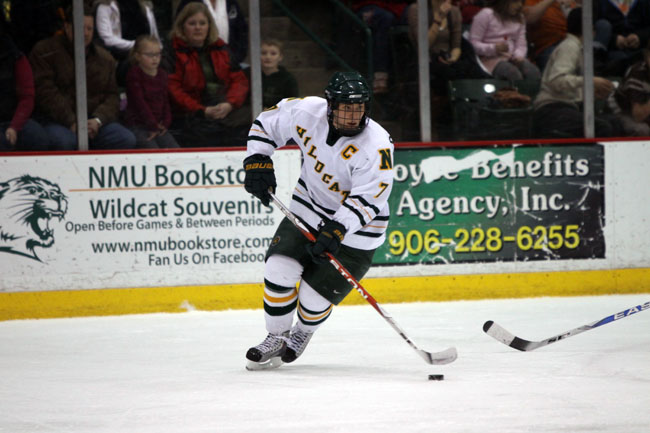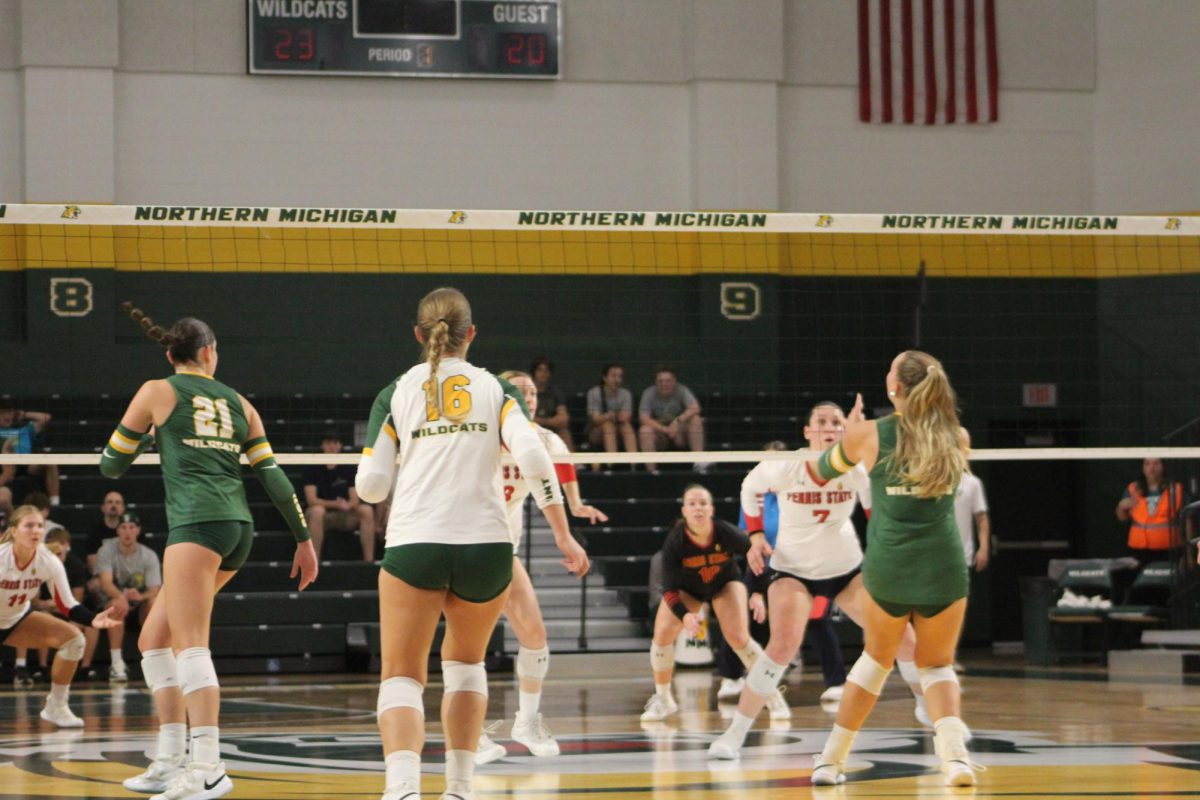Erik Gustafsson and Greger Hanson, both prominent Northern hockey players, moved here in 2007 from Sweden. Former Assistant Coach John Olver had traveled to Sweden and watched the two play at a junior league team in Stockholm, but he couldn’t recruit them through the usual channels.
“(Swedish) coaches didn’t want (Olver) to talk to any of the players because they wanted to keep the players in Sweden, so he followed me into a grocery store,” Gustafsson said. “He called my name and I didn’t think he was talking to me, so I just kept on walking but he called my name again and he started talking to me, and we just kept on having contact over the phone … and he helped me getting into the school.”

Gustafsson still has family and a girlfriend in Sundsvall, Sweden. He visits during the summer and winter break but said that he has never regretted coming to Northern
“It’s the best decision of my life so far. It’s just been great up here … it was a big adjustment; I didn’t really know the language that well. (But) it helped having Greger with me,” Gustafsson said. “They took good care of us right away, all of the players and the coaches, and I never regretted my decision.”
Coming to this country was a big change, and Gustafsson said he struggled at first to feel comfortable with the language.
“It’s like you can’t really be yourself, because if you want to make a point or you want to make a joke, it’s really slow in the beginning,” Gustafsson said. “You stumble on the words, and it’s hard to be yourself, so it’s kind of staying in the background but trying to be a nice guy.”
The two would go to each other for help as they were trying to get comfortable in Marquette.
“If there were things that one of us didn’t understand, we could go to the other guy and see if he understood it,” Hanson said.
“We could even talk Swedish every now and then.”
Though American college is different than Swedish higher education, Hanson wouldn’t have been able to play a high level of hockey while going to school in Sweden, something that he had wanted to do.
“College was a perfect alternative. Being able to study and play hockey at a really high level, it was a perfect fit for me,” Hanson said.
Higher education isn’t the only difference between the two countries that the pair had to get used to. The very game they were coming to play is different. Swedish hockey is played on a larger rink and is generally less aggressive.
“(American play) is more fun and it’s a better game, more fun to watch and to play. It’s more exciting for the crowd, so I actually do like it better here,” Hanson said.

NMU hockey coach Walt Kyle said that this difference has helped the players make the team stronger.
“They have great vision. With their experience in Sweden, they understand the game and how hockey should be played, which has benefited them in North American hockey,” Kyle explained.
Kyle said one of the things that have made Hanson and Gustafsson so valuable is their attitude toward the game.
“One of the most impressive things is they are both just so unentitled; they are willing to do whatever they have to do to be good players,” Kyle said.
This weekend, the two will make their third trip to the Joe Louis Arena as a part of the CCHA tournament, competing for the Mason Cup. This season alone, Hanson has scored 36 points, off 15 goals and 21 assists, making him the second highest scorer on the Wildcat roster. Gustafsson is a finalist for three CCHA awards: the RBC Player of the Year, the Best Offensive Defenseman and the Best Defensive Defenseman awards which will be presented Thursday, March 18.
Both players hope that their passion for hockey won’t stop after NMU.
“I want to give hockey a shot as a career, that would be my dream: go play pro and make a long career somewhere,” Gustafsson said.
Hanson wants to eventually play in the NHL. In the meantime, the two hope to take home the Mason Cup this weekend and again next year, their senior year.
Hanson said he has appreciated the support from the Marquette community, which he has found to be a great place to play hockey.
“People are really friendly around here and really social, that’s one thing that really strikes me,” Hanson said. “It’s really easy to get people to help you if you have problems.”























